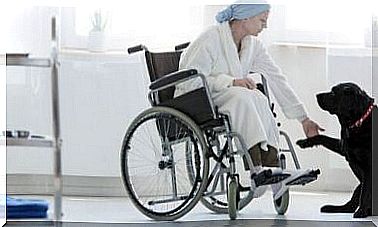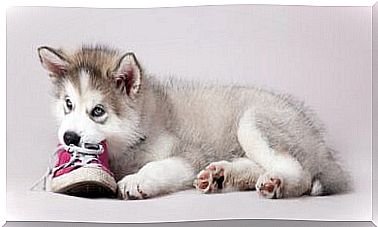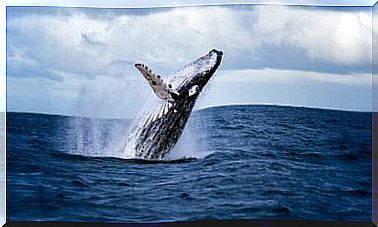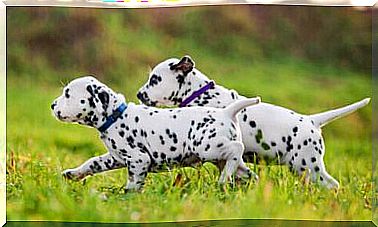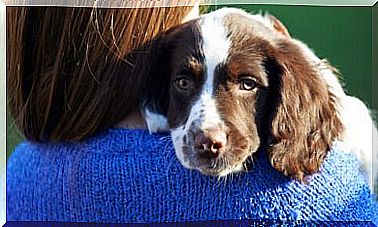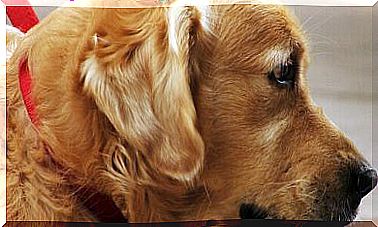Sleep In Older Dogs
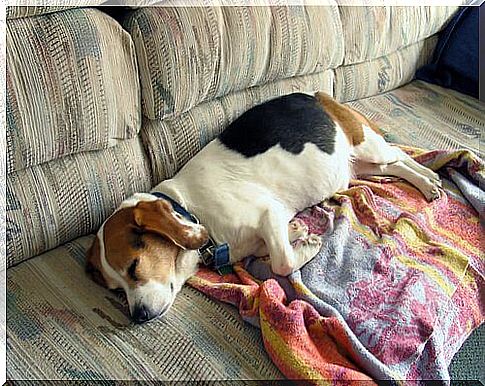
When your four-legged friends reach their third age, they need a series of specific treatments to keep themselves in good health. Among the crucial guidelines for healthy old age, you will need to pay special attention to sleep in older dogs.
In fact, in this delicate phase of life, they need to rest well to maintain a balanced metabolism and enjoy adequate longevity. In this article we will give you some tips to improve and protect your senior dog’s sleep.
The importance of sleep in older dogs
Older dogs need to sleep for many hours, just like puppies. In addition, they also require specific health care, as their immune systems are very sensitive. Many experts conceive old age as a regression to childhood, due to the similarities in many aspects of everyday life.
The sleep of older dogs is a determining factor in ensuring a healthy old age. Older dogs tend to sleep between 15 and 18 hours a day, but not necessarily continuously.
You also need to keep in mind that each dog is a world of its own. Therefore, you will need to have the ability and the patience to interpret the different signals that your four-legged friend will show.
In addition, it is essential to offer a positive and safe environment in which the dog can rest fully and in complete tranquility. Set up a clean and comfortable kennel away from noisy areas or appliances. Without forgetting the blankets to protect him from the cold, his favorite toys and lots of love.
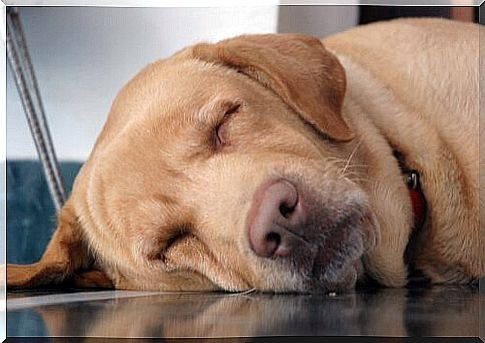
Some diseases can alter your behavior and cause changes in your routine , which also affects your sleep. Conversely, symptoms such as depression and lethargy can lead to an increase in daily sleep. In case of insomnia or signs of anxiety, the advice is to take the animal immediately to your trusted veterinarian.
Essential care for an older dog
The old age is a natural and inevitable process, but it is right to strive to make your home the living animal in the best way possible. To do this, you will need to incorporate some specific care and reinforce the healthy habits of his routine . Below we summarize four fundamental elements for the care of a dog over the years:
1. Power supply
After reaching the seventh year of age, a dog can be considered “senior”. In this phase you will experience a marked slowdown in your metabolism with the loss of a good amount of muscle mass. This results not only in calmer behavior, but also in lower physical strength and endurance.
The diet should address your dog’s nutritional needs and body changes. To maintain a correct weight and prevent obesity, diet should include a reduction in calories, with a lower consumption of carbohydrates. The proteins administered must be of high quality and easily digestible, so as not to burden the digestive system of the elderly animal.
We remind you that it is important to follow your veterinarian’s advice before making any changes to your pet’s diet. It will be he who will help you choose the ideal food as well as propose alternative recipes to make at home.
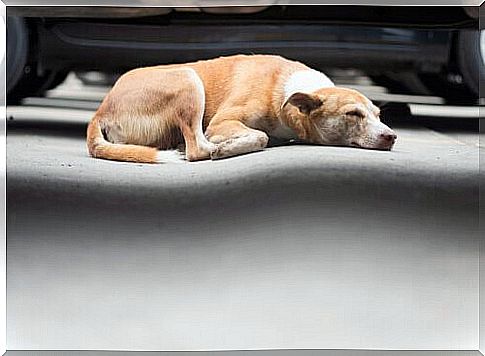
2. Physical activity
Older dogs do not have to carry out high impact activities, as the joints are now compromised by the wear and tear of time and the muscle mass is no longer what it used to be. However, this does not mean condemning the animal to a sedentary life, quite the contrary.
If you have an older dog, you will need to plan a regular exercise plan to keep him healthy. This means going out, walking around and continuing to encourage socialization with other animals and people.
The daily walks will be very important, but their duration and intensity will have to be reduced. The ideal is to plan 2-3 shorter rides, lasting between 15 and 20 minutes. It is also essential to continue stimulating the animal’s mind, with interactive toys and pastimes.
3. Natural supplements
In addition to a high quality diet, it is also interesting to consult the veterinarian on the use of natural supplements, vitamins and minerals. These nutrients help improve metabolism and strengthen the immune system of older dogs.
Additionally, supplements can be very effective in preventing or delaying the symptoms of degenerative diseases, such as hip and elbow dysplasia. They are also recommended to prevent muscle loss and preserve joint structure.
4. Respect the hours of sleep in older dogs
All these treatments are essential to help the senior dog rest properly. The days of non-stop races and hyperactivity are long gone. Alongside the balanced diet, an age-appropriate dose of physical exercise and the use of supplements, rest and sleep in older dogs complete the care that must be guaranteed for these animals. Make sure their bed is comfortable, warm and comfortable. Limit the noises and, above all, respect your dog’s breaks. If he’s sleeping, don’t wake him – you’ll play with him later. It is a fundamental aspect to make sure that your life expectancy is as long as possible.
